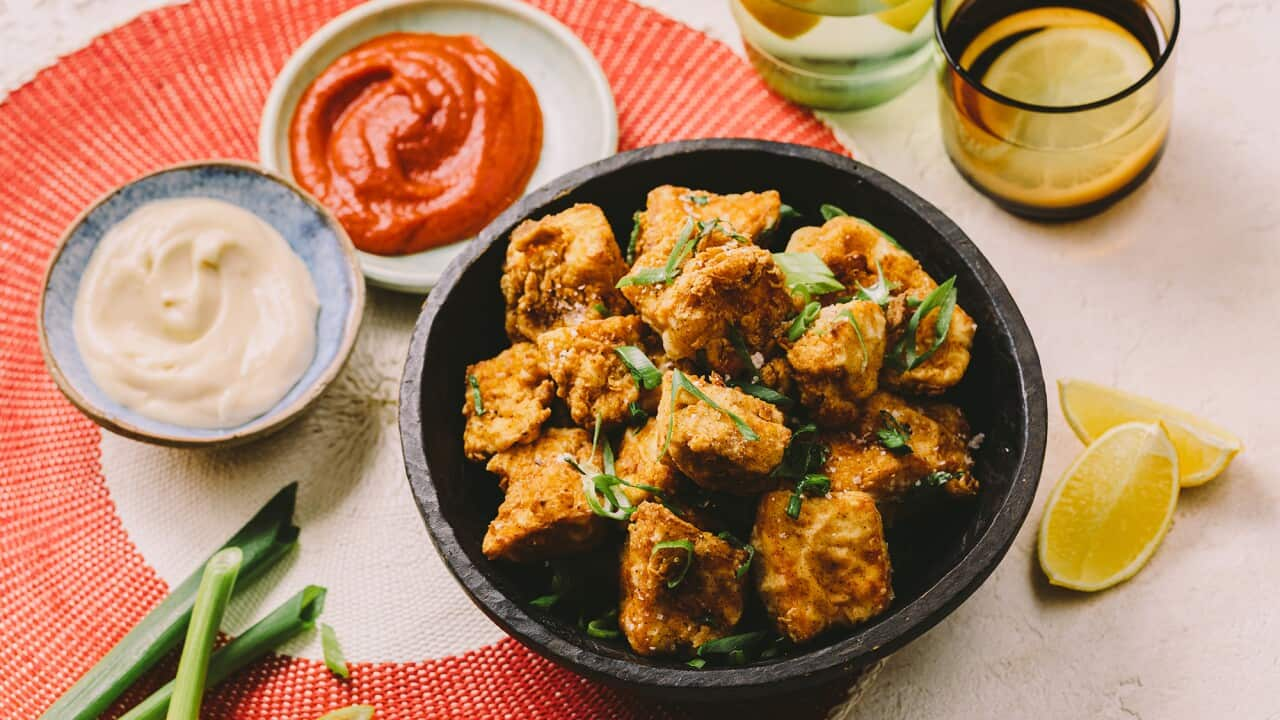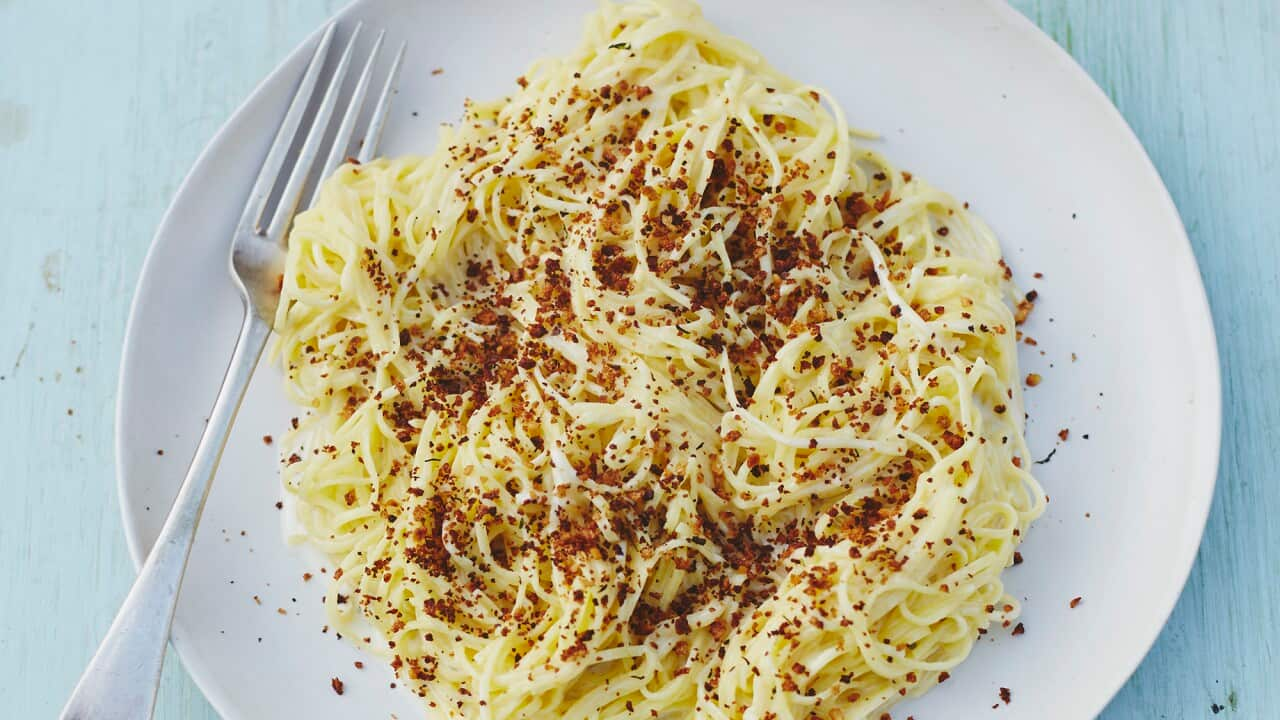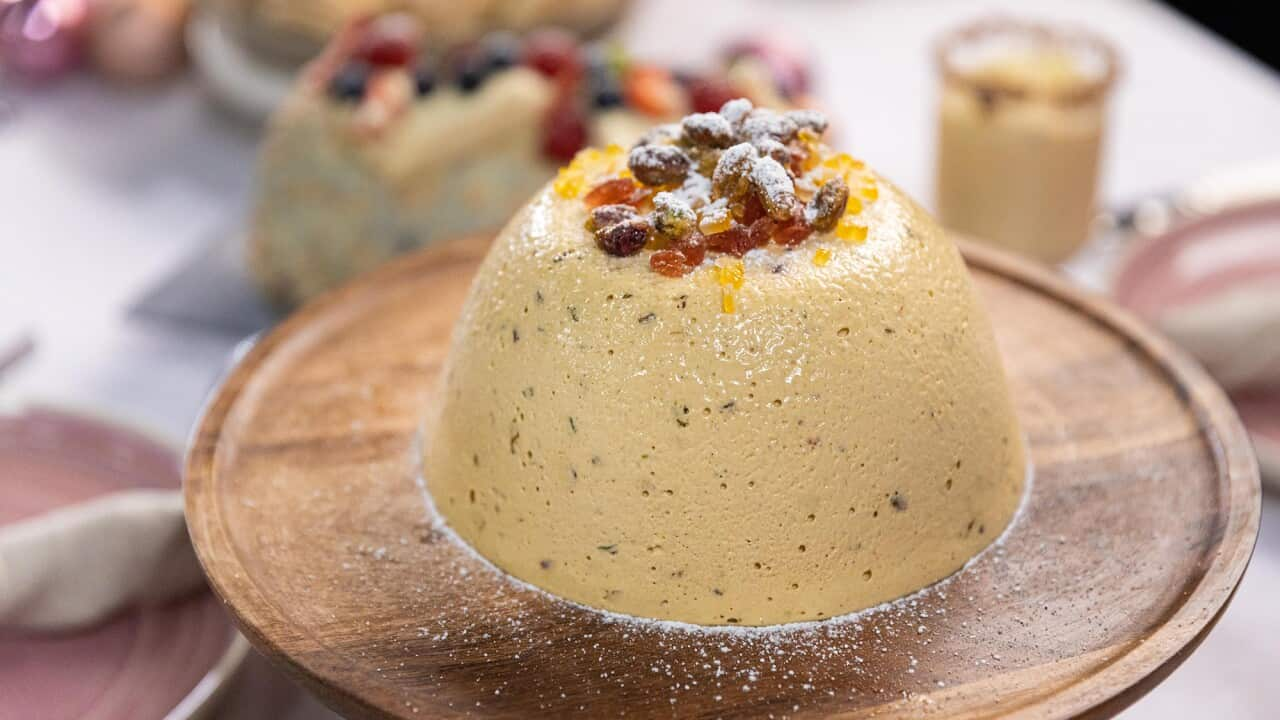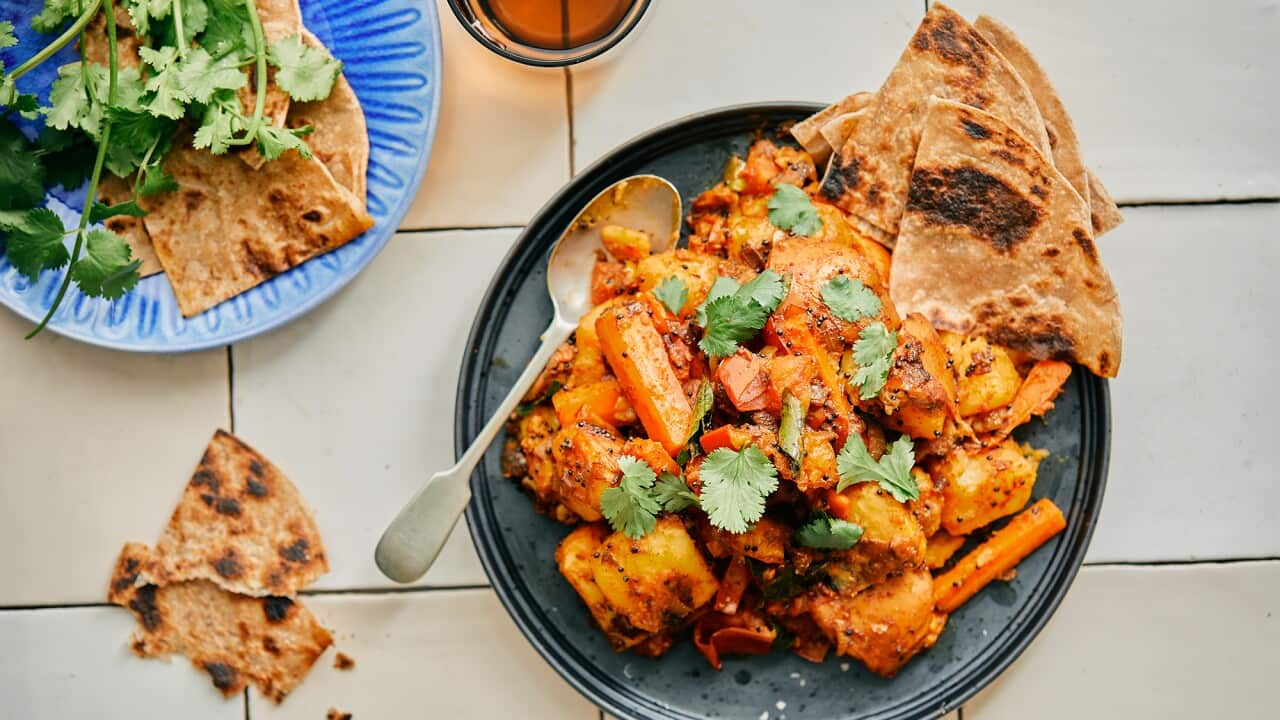serves
8-10
prep
5 minutes
cook
1:50 hour
difficulty
Easy
serves
8-10
people
preparation
5
minutes
cooking
1:50
hour
difficulty
Easy
level
Ingredients
- 60 ml (¼ cup) olive oil
- 1 large brown onion, finely diced sea salt
- 1 large garlic clove, finely sliced
- 600 g pork shoulder, cut into 2–3 cm dice
- 200 g topside beef, cut into 2–3 cm dice
- 2 tbsp sweet paprika
- 1 tsp crushed cumin seeds
- ½ tsp crushed caraway seeds
- ½ tsp freshly cracked black pepper
- 200 g peeled tinned tomatoes
- 250 ml (1 cup) beef stock, preferably home-made
- 500 g (3½ cups) sauerkraut, drained
- 200 g sour cream, to serve
Instructions
- Place the olive oil in a large flameproof casserole dish over medium–low heat. Add the onion and a pinch of salt and sauté for about 10 minutes, or until the onion is translucent, softened and just starting to brown. Add the garlic and cook until fragrant.
- Increase the heat to medium. Brown the pork and beef, stirring regularly; there should still be a bit of pink left when you're done. Add the spices and stir them through, then add the tomatoes and enough stock to just cover the meat. Once it starts simmering, cover and reduce the heat so that it is barely bubbling. Cook for about 1 hour 20 minutes, or until the meat is tender, stirring occasionally
- Before adding your sauerkraut, have a taste to see how sour it is. If it is too sour for your taste, rinse it in plenty of cold water and drain well.
- Once you are happy with the taste of the sauerkraut, add it to the goulash and cook for another 10 minutes or so. Add salt to taste. Lastly, swirl through the sour cream and serve immediately. (If you are not eating it immediately, I would leave out the sour cream, which should be swirled through just before serving – even on individual plates).
- Serve the goulash with potato gnocchi – or if you have less time, mashed potatoes will do fine.
Cook's Notes
Oven temperatures are for conventional; if using fan-forced (convection), reduce the temperature by 20˚C. | We use Australian tablespoons and cups: 1 teaspoon equals 5 ml; 1 tablespoon equals 20 ml; 1 cup equals 250 ml. | All herbs are fresh (unless specified) and cups are lightly packed. | All vegetables are medium size and peeled, unless specified. | All eggs are 55-60 g, unless specified.









